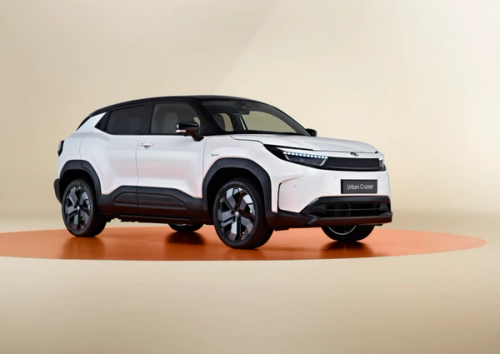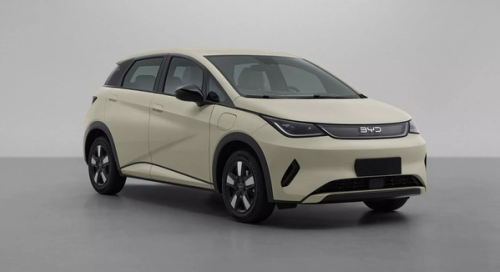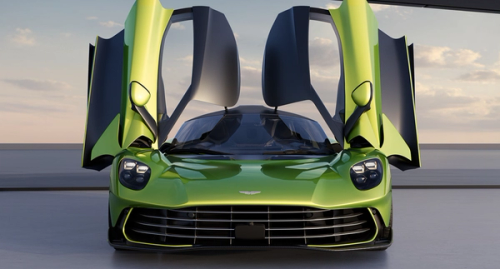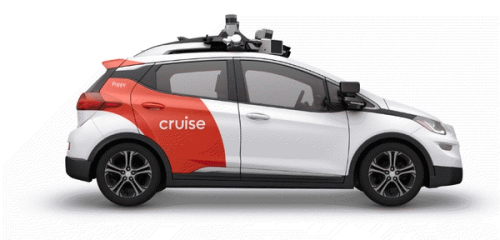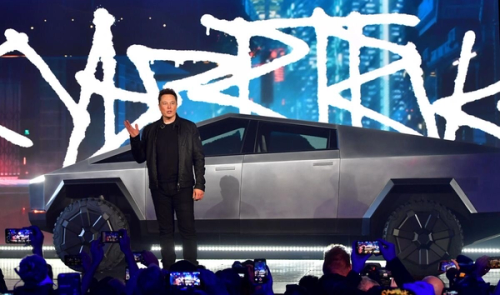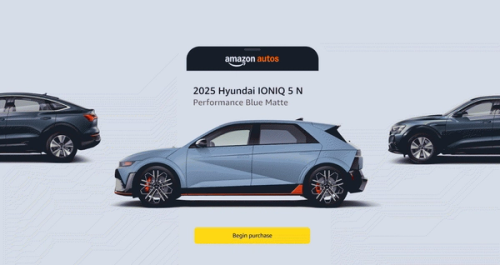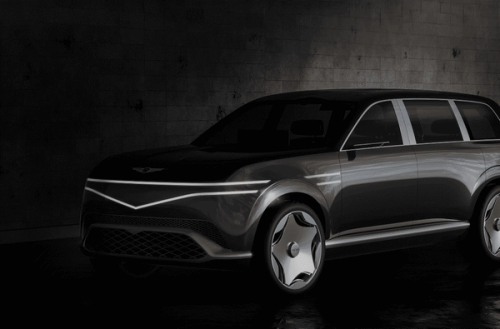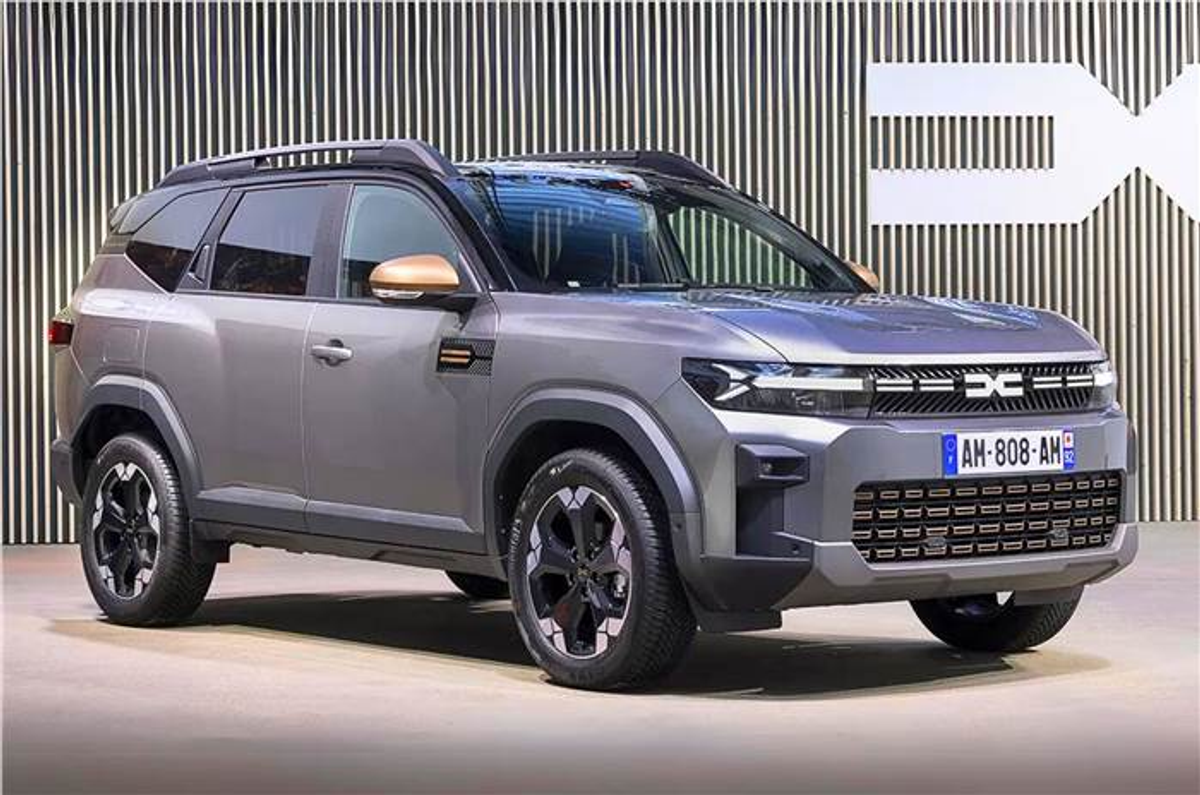Renault Duster-based Bigster revealed
10 Oct 2024
25
By terrance

duster
Revealed with a Dacia badge, the Bigster will come to India as a Renault. Will get seven seats and rival the Hyundai Alcazar, Mahindra XUV700 and Tata Safari.
Renault’s budget brand overseas, Dacia, has taken the wraps off the Bigster before its showing at the upcoming Paris Motor Show (starting October 17). Said to be the biggest Dacia model yet, the SUV is based on the Renault Duster, and is expected to make its way to India, albeit as a 7-seater.
- Bigster is around 230mm longer than the Duster
- Interiors and features list are similar to the Duster
- Gets strong hybrid, mild-hybrid and LPG powertrain options
Dacia Bigster dimensions, exterior highlights
Compared to the Duster on which it is based, the Bigster is significantly larger – it’s about 230mm longer overall and has a wheelbase that is about 43mm longer as well. The Bigster measures 4.57 metre in length, 1.81 metre in width, 1.71 metre in height and has a 2.7-metre-long wheelbase.
The production model carries over a lot from the Bigster concept that was previewed in 2021. The nose features a large, gloss black grille with the Dacia logo in the centre. Like with the Duster, the Bigster gets a high, creased bonnet that is said to optimise the driver's line of sight. The headlight and tail-light units are LEDs and feature a Y-shaped light signature.
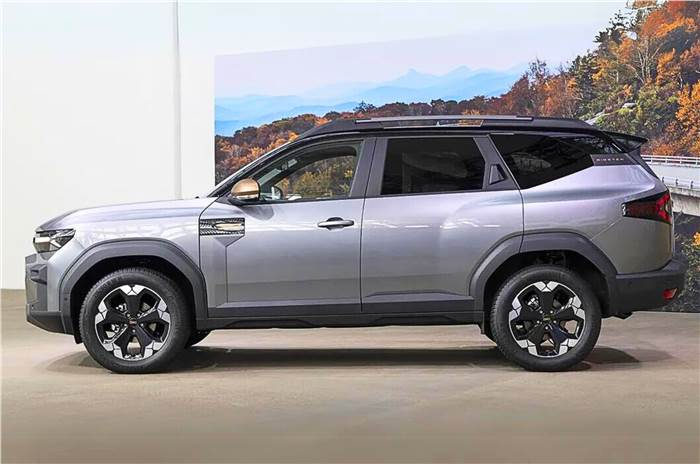
Along the sides, the Bigster features thick plastic body cladding that merge into the chunky front and rear bumpers. The brand says the Bigster has a ground clearance of 220mm, which gives it an adventurous stance. In international markets, it gets a dual-tone finish on the alloy and wheel sizes range between 17 and 19 inches.
Dacia Bigster interior, feature highlights
While there was speculation that the Bigster would be three-row SUV, with seating for up to seven passengers, the model revealed is a 5-seater, with an immense 667-litre boot. The layout of the cabin is more or less the same as the Duster, from the choice of a 7- or 10-inch digital instrument cluster and 10.1-inch infotainment touchscreen, to the Y-shaped motifs on the AC vents. It gets an ADAS suite, depending on the variant, and other feature highlights include a powered tailgate, a panoramic sunroof, wireless charging, dual-zone climate control, an Arkamys audio system and a powered driver's seat.
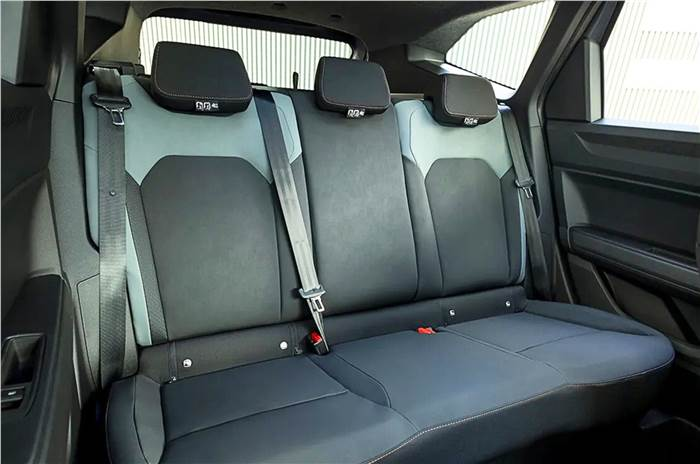
For now, the Bigster will be offered with strong hybrid, mild-hybrid petrol, and LPG powertrain options. In the hybrid model, a 107hp, four-cylinder petrol engine works in conjunction with two electric motors making 50hp and a 1.4kWh battery pack; the combined output is 155hp. Power is sent to the front wheels via a 4-speed automatic transmission for the petrol engine and 2-speed transmission for the e-motor.
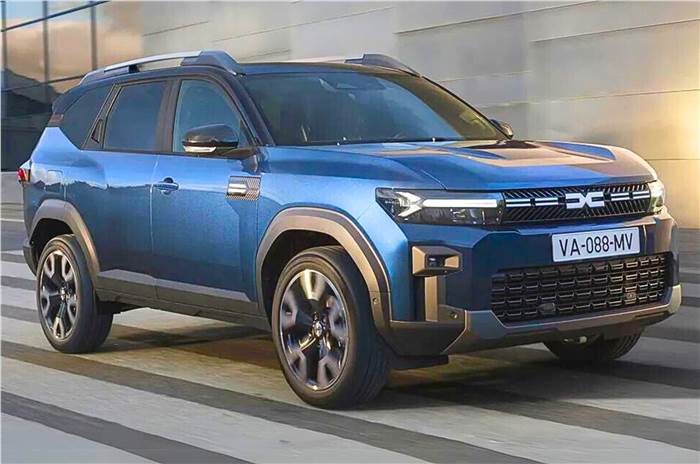
The mild-hybrid Bigster comes with a 140hp, 1.2-litre turbo-petrol and a 48V system. This is paired to a 6-speed manual, which sends power to the front wheels. This engine also comes with optional AWD tech, which adds drive modes like Snow, Mud/Sand, Off-Road, Normal, Eco and hill descent control. The third engine option is a 1.2-litre turbo-petrol with mild-hybrid assist which runs on LPG and petrol, and can produce up to 140hp. Dacia says that this Bigster LPG can go 1,450km between refills thanks to the 50-litre petrol tank and 49-litre LPG tank.
While European markets are not expected to get a diesel-powered Bigster, some developing markets are likely to get one.
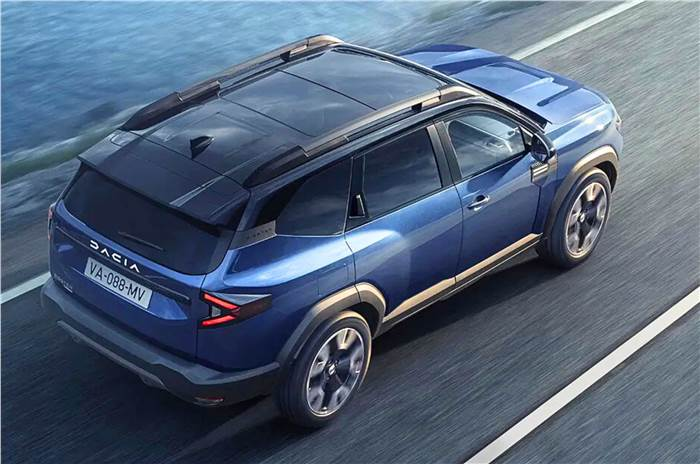
As we’ve reported before, the Bigster is expected to come to India six months after the Renault Duster arrives; the smaller SUV is scheduled to make it to a Renault showroom near you in the second half of 2025. For the Indian market, it is likely that Renault will add another row of seats to the Bigster so that it can take on the likes of the Hyundai Alcazar, Tata Safari and Mahindra XUV700.
Sister brand Nissan will also have its own version of the 7-seater SUV and the Duster on sale in India. However, both these SUVs will come some time after the Renaults.

